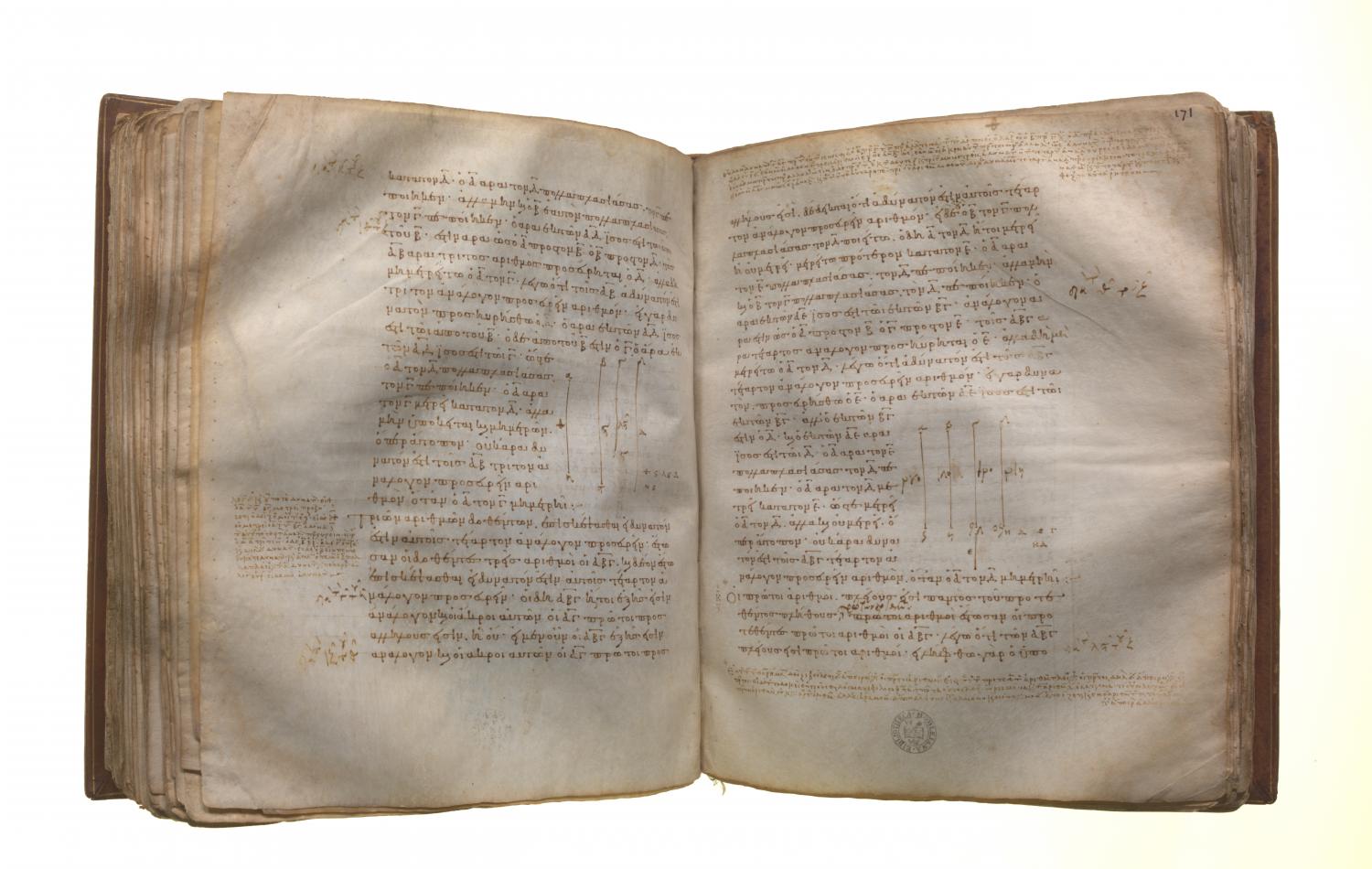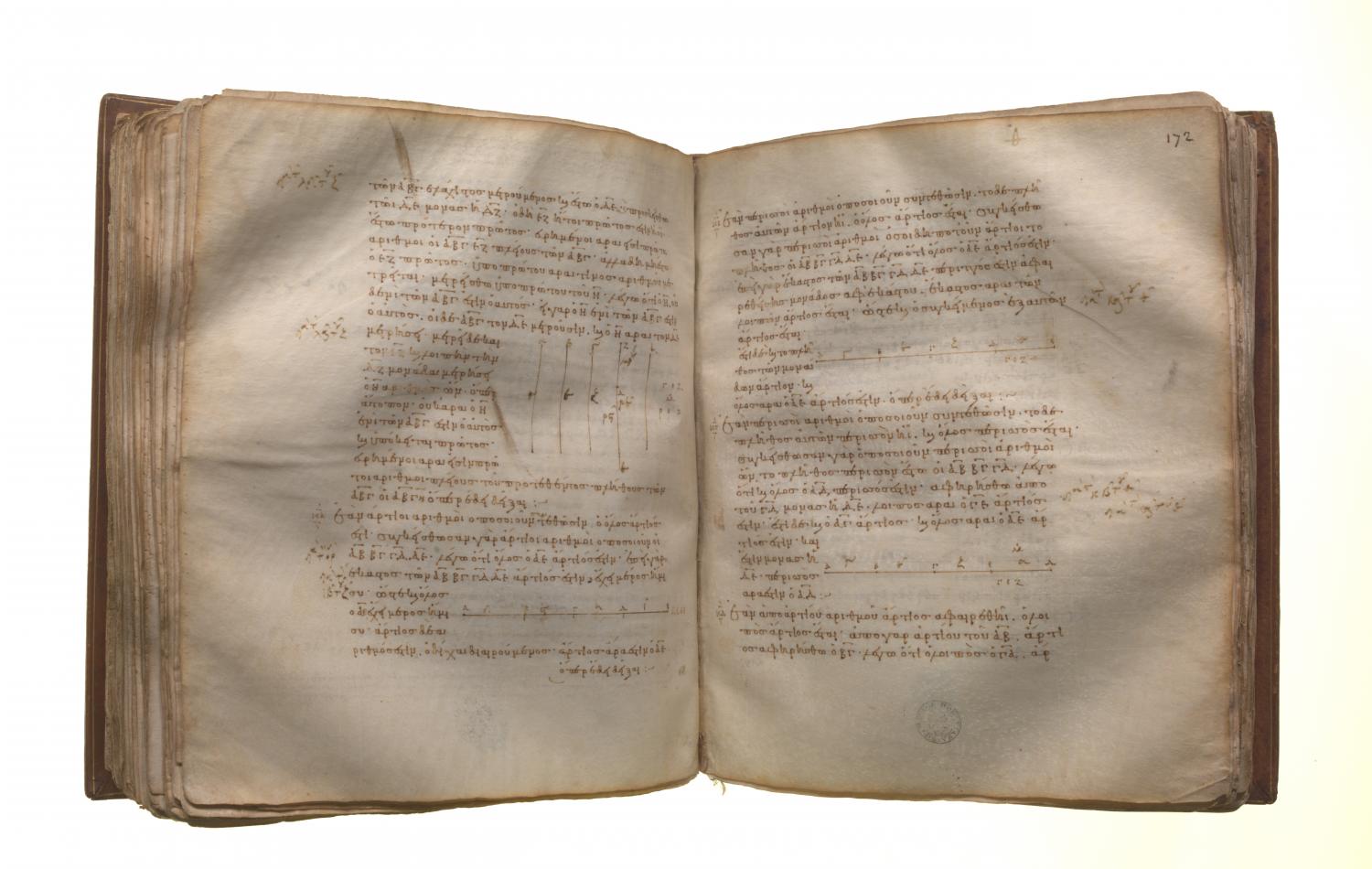Number theory: Book 9 Proposition 20
Translations
Prime numbers are more than any assigned multitude of prime numbers. Let A, B, C be the assigned prime numbers; I say that there are more prime numbers than A, B, C. For let the least number measured by A, B, C be taken, and let it be DE; let the unit DF be added to DE. Then EF is either prime or not. First, let it be prime; then the prime numbers A, B, C, EF have been found which are more than A, B, C. Next, let EF not be prime; therefore it is measured by some prime number. [VII. 31] Let it be measured by the prime number G. I say that G is not the same with any of the numbers A, B, C. For, if possible, let it be so. Now A, B, C measure DE; therefore G also will measure DE. But it also measures EF. Therefore G, being a number, will measure the remainder, the unit DF: which is absurd. Therefore G is not the same with any one of the numbers A, B, C. And by hypothesis it is prime.

